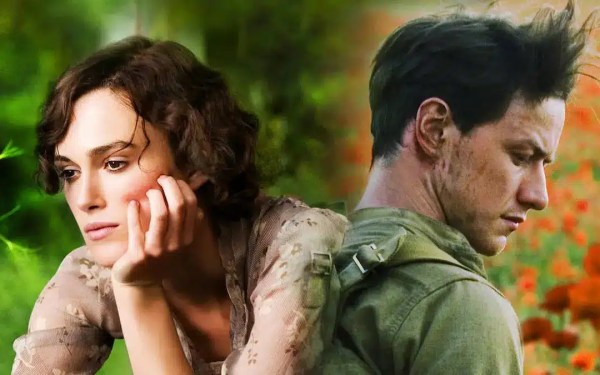Review: The Dystopian Brave New World by Aldous Huxley

Disclaimer
This post may contain affiliate links. I will make a small commission if you make a purchase through one of these links, at no extra cost to you. See full disclosure and disclaimer policy HERE.
Brave New World by Aldous Huxley is timeless classic, published in 1932, that presents a chilling vision of a future society. In this article, we will delve into the captivating world created by Huxley, analysing its impact and relevance to our present society.
Table of Contents
- Plot Summary: The Dystopian Society of Brave New World
- A Critique Of Modern Civilisation
- Themes Explored In Brave New World
- Relevance In Today's World
- Conclusion
- FAQs
Plot Summary: The Dystopian Society of Brave New World
In Brave New World, Huxley transports us to a futuristic society where science and technology reign supreme. Set in London in the year 2540, the world depicted is one where individuals are engineered and conditioned from birth to fit into a strict hierarchical system. Social classes are predetermined, and citizens are divided into distinct castes based on their genetic makeup and purpose in society.
The story follows the journey of Bernard Marx, an Alpha Plus intellectual, and Lenina Crowne, an attractive Beta woman, as they navigate the intricacies of this tightly controlled society. Through their eyes, Huxley unveils the dark side of a world where individuality is suppressed, emotions are numbed by a drug called Soma, and personal relationships are superficial at best.
A Critique Of Modern Civilisation
Huxley’s Brave New World serves as a poignant critique of the direction in which society was headed, even during his time. With stunning foresight, he highlights the dangers of a society driven by consumerism, instant gratification, and the pursuit of happiness at the expense of individuality and critical thinking.
The relentless pursuit of pleasure and comfort, along with the suppression of emotions and intellectual curiosity, ultimately strips humanity of its essence. Huxley’s depiction of a society where citizens willingly embrace their oppression is a stark reminder of the potential consequences of an unchecked drive for progress and a lack of ethical consideration.
RELATED:
Why You Should Read Aldous Huxley: His Best Novels
Themes Explored In Brave New World
- Technological Advancements and Control: One of the central themes in Brave New World is the pervasive influence of technology and its role in controlling society. Huxley depicts a world where science and technology are used to manipulate human beings, conditioning them from birth to fit into predetermined roles and suppressing individuality.
- Loss of Individuality and Freedom: The novel raises important questions about the sacrifice of individuality and personal freedom in the pursuit of societal stability and conformity. In this dystopian society, citizens are conditioned to think and act in predetermined ways, leading to a loss of genuine human emotions, creativity, and personal agency.
- The Pursuit of Pleasure and Consumerism: Huxley critiques a society driven by the relentless pursuit of pleasure and instant gratification. In Brave New World, people are conditioned to seek superficial and immediate pleasures, often through the use of the drug Soma. The novel highlights the dangers of a society where materialistic pursuits and hedonism overshadow deeper human experiences.
- Dehumanisation and Objectification: The novel explores the dehumanising effects of a society that reduces individuals to mere objects, valued solely for their productivity and ability to fulfill specific roles. Relationships in this world are shallow and devoid of emotional connection, emphasising the loss of genuine human connection and intimacy.
- Critique of Social Conditioning and Consumer Culture: Huxley criticizes the impact of social conditioning and consumer culture on society. The citizens in Brave New World are conditioned from birth to accept their predetermined roles and values, perpetuating a system that discourages critical thinking and independent thought.
- The Struggle for Individuality and Authenticity: Amidst the conformity and oppression, the novel explores the struggle of characters like Bernard and John who yearn for individuality, freedom, and authentic human experiences. Their rebellion against societal norms and their pursuit of personal identity serve as a critique of a system that suppresses individuality.
- The Role of Knowledge and Ignorance: Huxley raises questions about the power dynamics between knowledge and ignorance. In Brave New World, knowledge and critical thinking are discouraged, and citizens are kept ignorant of alternative possibilities. This theme highlights the dangers of a society that restricts access to information and stifles intellectual curiosity.
These themes, intricately woven into the fabric of the narrative, challenge readers to reflect on the values and trajectory of our own society, prompting us to question the consequences of sacrificing individuality, freedom, and human connection for the sake of progress and societal harmony.
Relevance In Today’s World
Though written nearly a century ago, Brave New World remains highly relevant in our modern society. Its exploration of the impact of technology, the dangers of excessive consumption, and the importance of individual freedom still resonate strongly with contemporary readers.
As we navigate an era dominated by technological advancements, social media, and a relentless pursuit of pleasure, Huxley’s cautionary tale serves as a wake-up call. It prompts us to reflect on the value of genuine human connections, the importance of critical thinking, and the dangers of sacrificing individuality for the sake of societal harmony.
RELATED:
Dystopian Books: A Haunting Look At The Future
Conclusion
Brave New World by Aldous Huxley stands as a timeless masterpiece that challenges readers to question the direction of society and the values we hold dear. Huxley’s vivid portrayal of a dystopian future serves as a warning against the perils of sacrificing individuality, freedom of thought, and emotional depth in the pursuit of progress and pleasure.
This thought-provoking novel remains a significant contribution to literature, urging us to strive for a future where technology and progress align harmoniously with human values.












